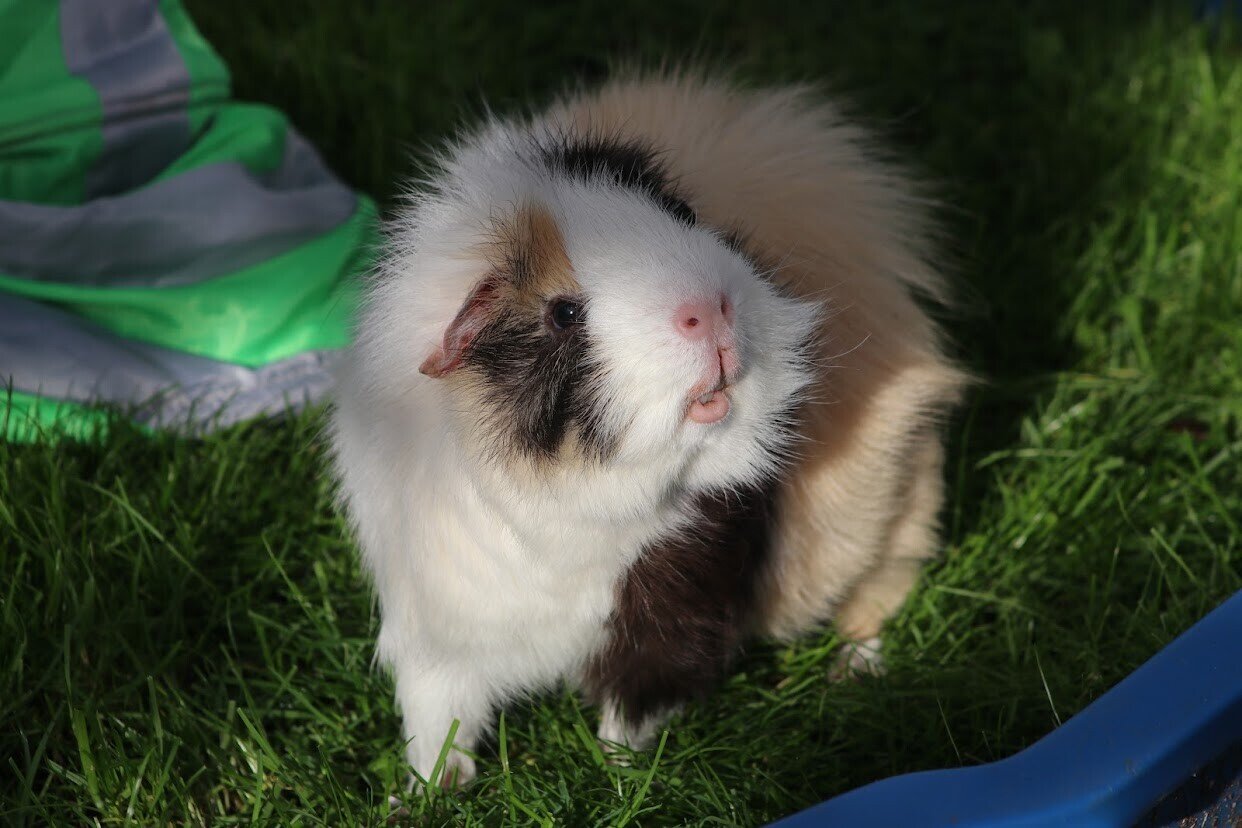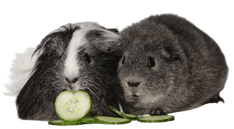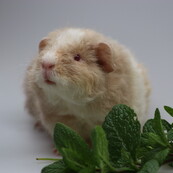Basic And Interesting Information
The guinea pig (Cavia porcellus), also known as a ‘Cavy’, is a member of the rodent family Caviidae. They generally live for an average of 6-8 years, however some can live longer, and we have seen some guinea pigs that have been twelve years of age! There are many different coat types and colour variations available in New Zealand.
Guinea pigs are social pets and loving companions that require daily attention and upkeep. They communicate by making various sounds and jumping (popcorning) in the air when happy!
A normal but somewhat unpleasant activity that guinea pigs partake in is coprophagia. This is where they will eat their own faeces, and it’s normal behaviour for a guinea pig to do. It helps keep the good bacteria in their digestive tract healthy.
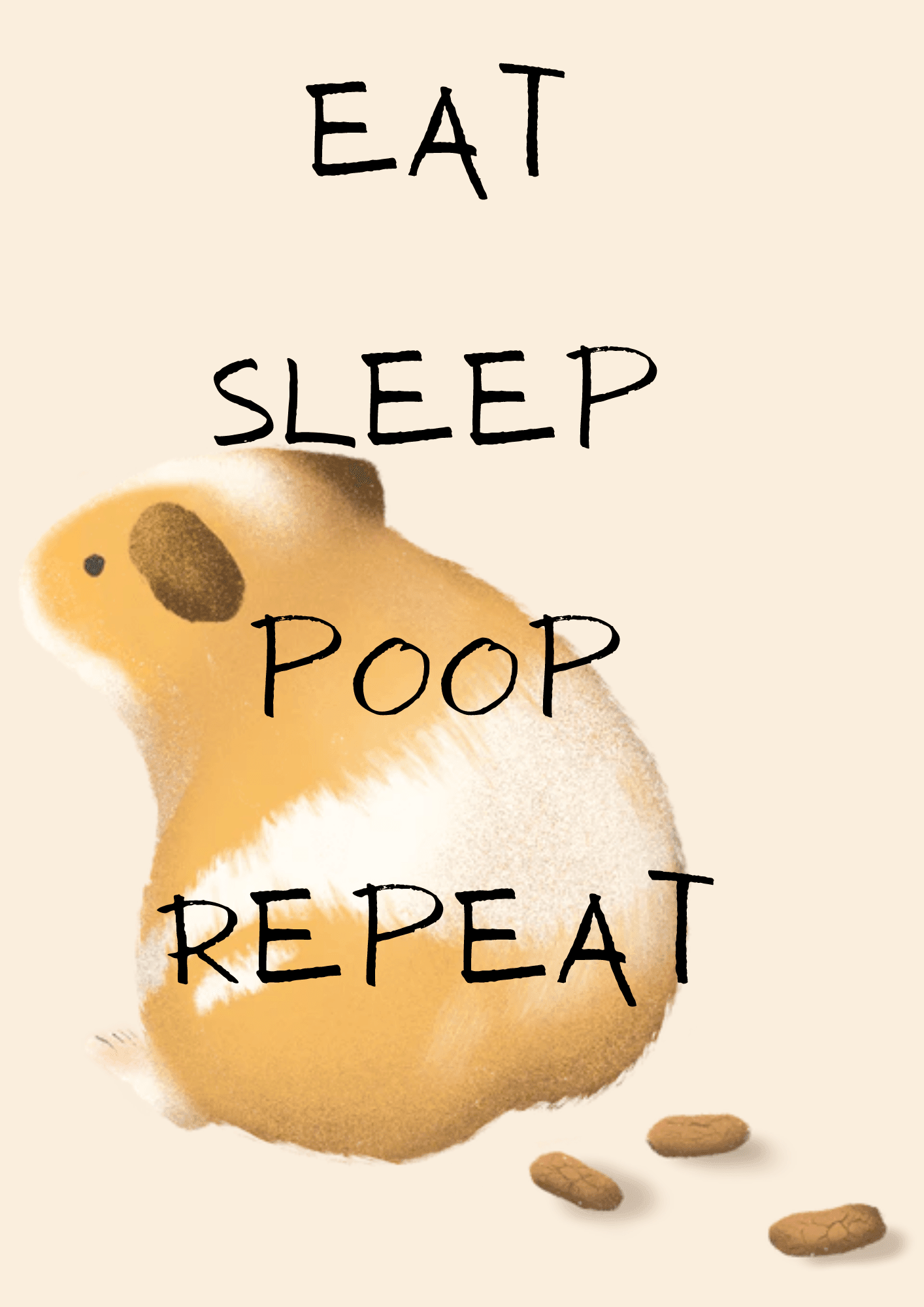
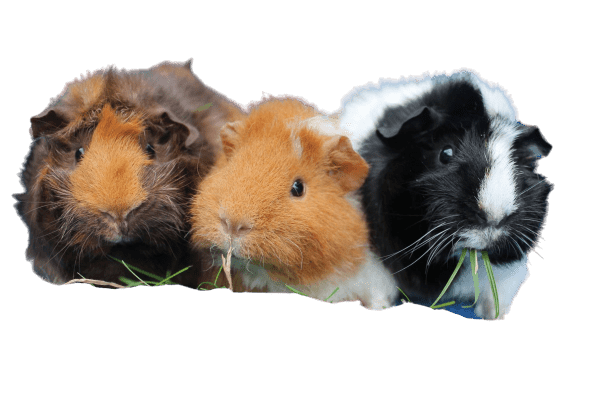
General Keeping Recommendations
Guinea pigs are considered herd animals, and they enjoy the company of other guinea pigs. There is little difference between boars and sows as pets.
Guinea pigs can be kept in same sex pairs, or if de-sexed we recommend a male/female pairing. If de-sexed you can house mulitple females with a single male but it is not often recommended to house more than two males together - though this depends on their personalities and cage size!
Husbandry And Housing
Good husbandry is essential with guinea pigs, with many diseases being preventable with adequate care. Guinea pigs do well in a large hutch or cage that is either inside or undercover and free from direct sunlight, rain and windy drafts. It is recommended that a pair of guinea pigs is be provided with a minimum floor space of approximately 1 sq meter; however, the more room, the better.
We recommend the joint use of towels or furniture removal pads with fleece ontop for indoor guinea pig housing. The bedding should be changed regularly to avoid the cage becoming too dirty or smelly. If housed indoors we highly recommend c&c caging.
Info on how to use fleece bedding for guinea pigs.
Ammonia is produced in guinea pig urine, and guinea pigs are sensitive to high ammonia levels in the air. Keeping the hutch clean and tidy helps keep ammonia levels down and avoid potential problems. Waste from the hutch makes for great mulch and compost for your garden.

Cage Accessories And Enrichment
Guinea pigs love hidey holes, so enrichment can be provided by placing things such as hide away castles, plastic tunnels/pipes, cardboard houses and hay nests in your guinea pig’s hutch. Enrichment can also be provided in the form of toys and may provide hours of entertainment for your guinea pig each day.
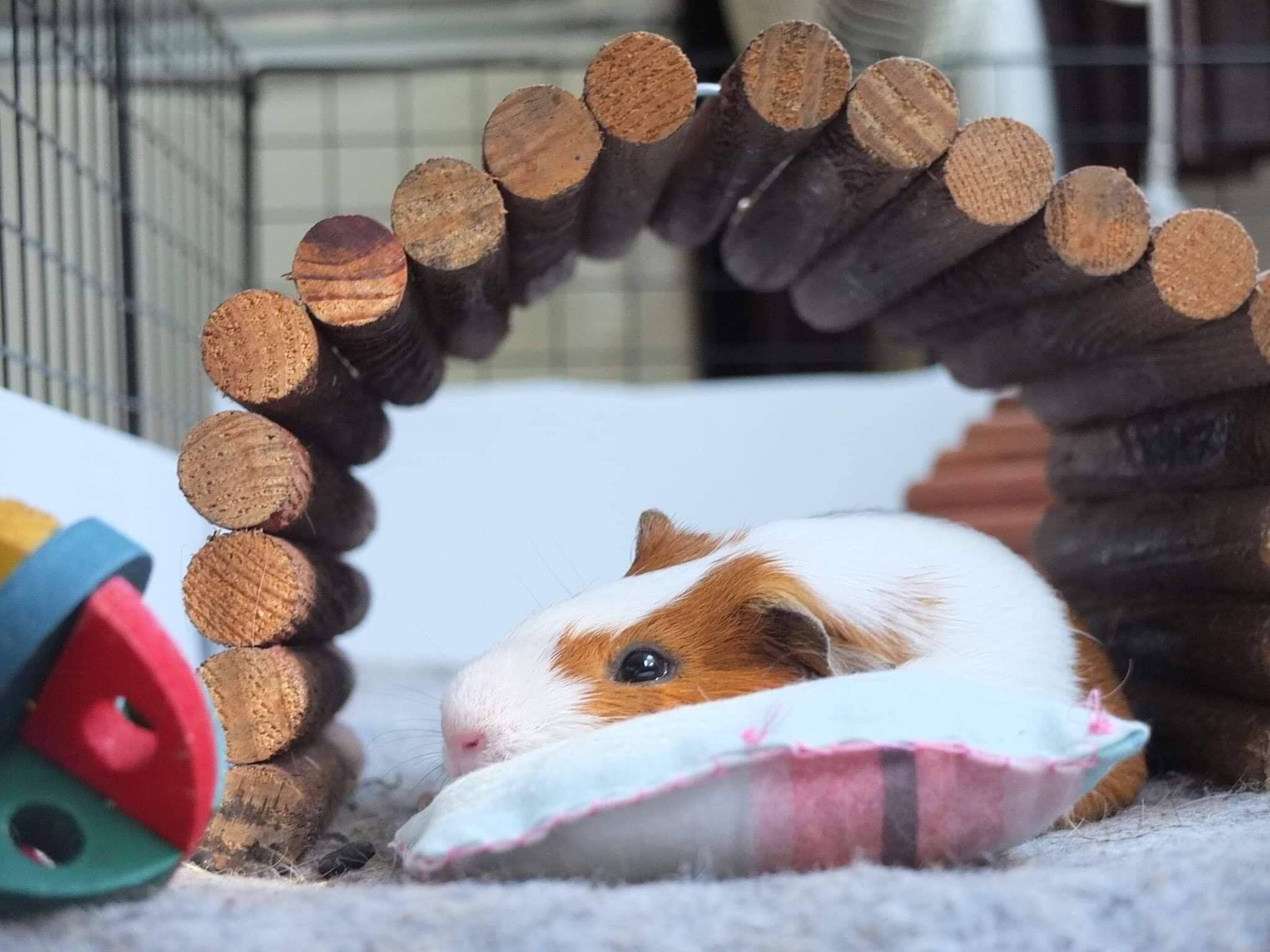
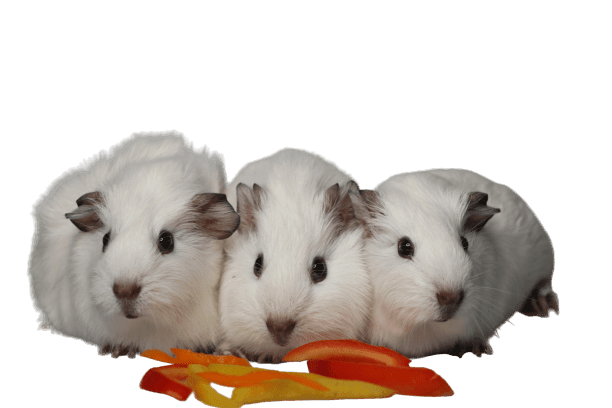
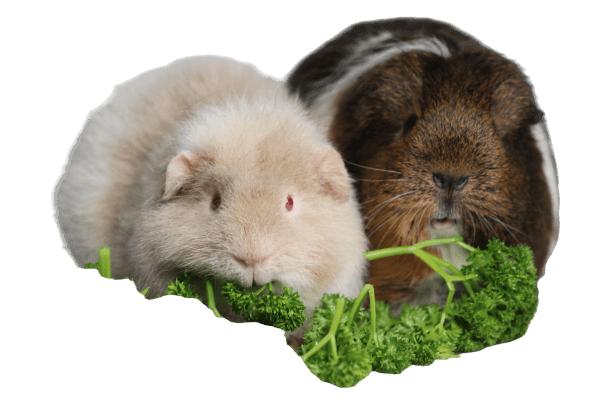
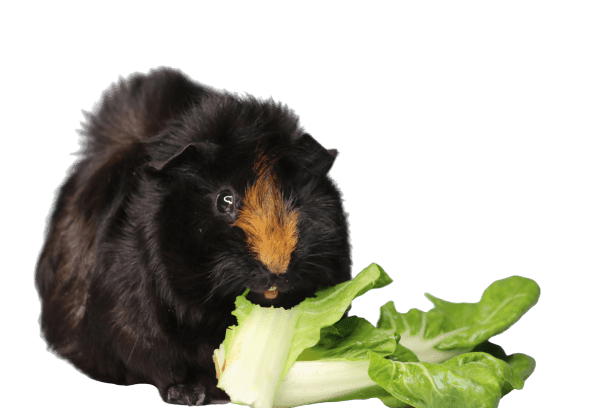
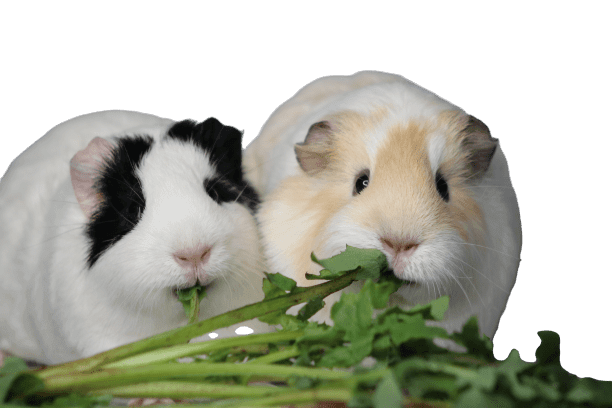
What To Feed My Guinea Pig?
Guinea pigs require a diet high in fibre and protein, with some fats, carbohydrates, vitamins and minerals. Fibre is a critical part of a guinea pig’s diet. Diets lacking fibre have been associated with gastrointestinal and dental diseases.
Guinea pigs cannot produce and store Vitamin C (ascorbic acid) in their body; hence Vitamin C is a dietary essential for a guinea pig and must be provided in the daily diet. Deficiencies of vitamin C can lead to a range of serious diseases.
It is important to provide a diet for your pet guinea pig high in protein, fibre and vitamin C. This can be achieved by providing plenty of good quality meadow or timothy hay, a small amount of a quality pellets, as well as daily vegetables and fruits. Too much fruit in the diet can lead to gastrointestinal issues, and we recommend using fruits as treats only.
Vegetables that are safe to feed and that contain high levels of Vitamin C include leafy green lettuce (not iceberg), puha, parsley, broccoli (stem and flower), kale, Asian greens, capsicum, spinach and mint.
Guinea pigs love fresh grass, which is great for their digestive and dental health. Providing time on the lawn in a secure cage is a great way to provide grass to your pet.
Clean, fresh water should be on offer at all times. This can be provided easily with a drinker bottle attached to the cage; however, many guinea pigs do prefer a bowl.
Guinea pigs diet should be made up of unlimted fresh water & hay. Around 1 cup of fresh veggies and forage a day per Guinea Pig. Each pellet brand recommends a different amount per Guinea Pig so please check what the brand you use recommends - we have found the overall favourite brand of Guinea Pigs is Burgess which you can buy from Pet.Kiwi, Animates, Pet Stock & One Stop Bunny Shop. A small amount of their diet can be made up of treats - aka fruit.
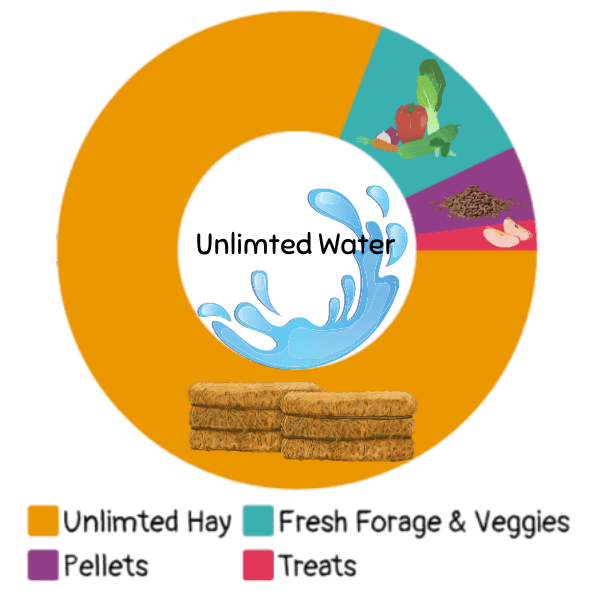
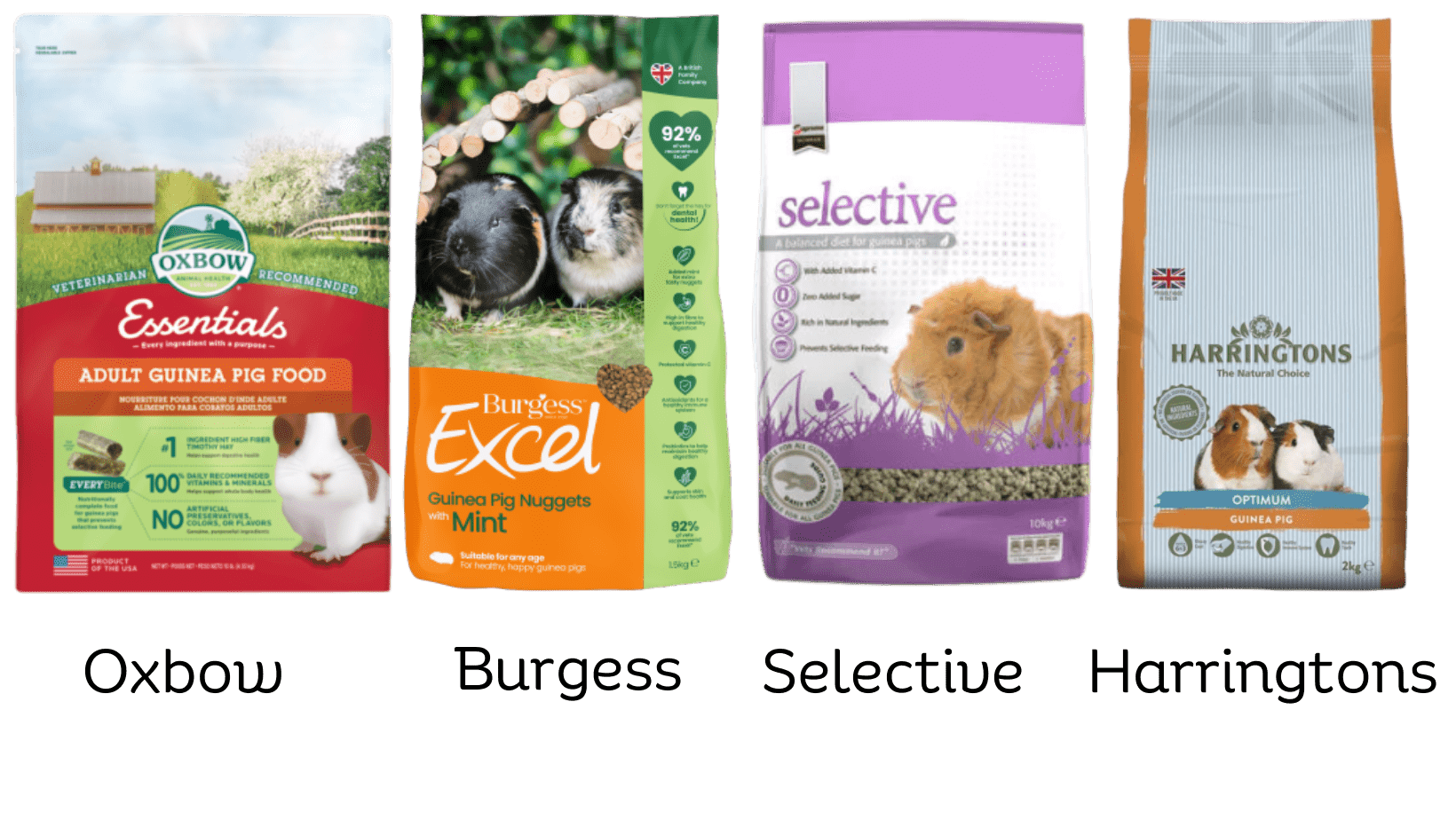
What Do I Need To Take My Guinea Pig To The Vet For?
Guinea pigs require regular veterinary care and health checks. The following is a summary of what we recommend.
Regular Health Checks
We recommend health checks for guinea pigs every 6 to 12 months. At this time, your guinea pig will receive a thorough examination to help identify any occurring problems.
There are no vaccinations available for guinea pigs in New Zealand; therefore, guinea pigs do not require annual vaccinations.
De-sexing
Neutering your guinea pig can be beneficial for the following reasons:
Reducing the risk of fights occurring if you have more than one guinea pig
Decreasing aggression between boars
Prevents unwanted pregnancies
It prevents the development of ovarian cysts in females, which is a common reproductive disease in female guinea pigs.
Reducing the risk of male guinea pigs developing faecal impaction (which often requires the build-up of faeces around their anus to be cleaned by their owner daily).
We recommend de-sexing all guinea pigs generally from 4 months of age
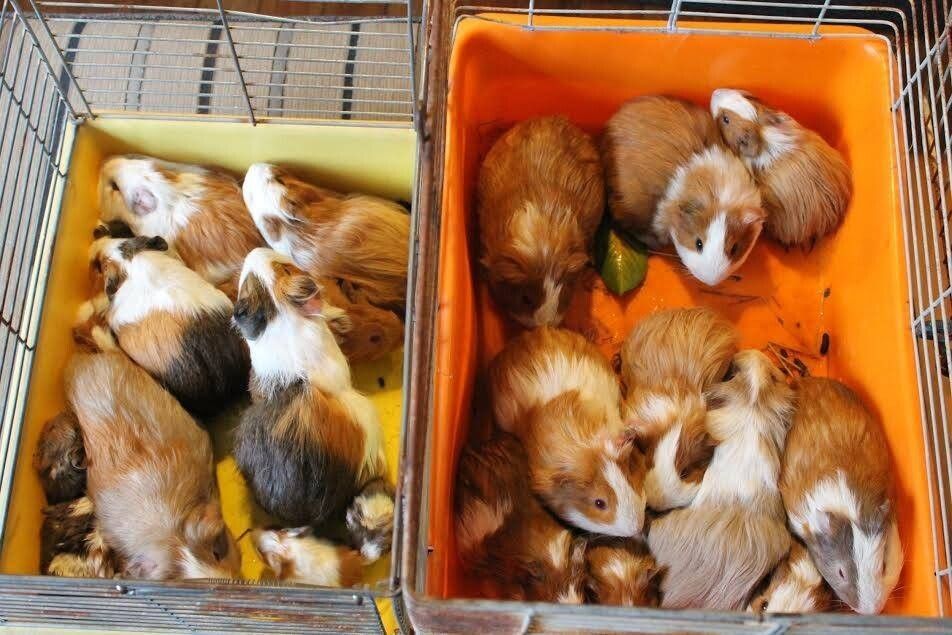
Signs Your Guinea Pig Is Unwell
Even with the best care, problems can still occur. Things to watch out for include but are not limited to the following:
Lethargy
Diarrhoea
Weak hind legs
Hair loss
Not eating or not drinking
Pooh not normal shape
Dull eye colour or coat
Squealing when urinating
Dirty teeth
Scratching excessively
Water staining around the mouth
Weight loss
Discharge from eyes and/or nostrils
Lump formation
By following the above advice, you can help reduce the chances of common problems occurring and ensure that your guinea pig receives the care they deserve.
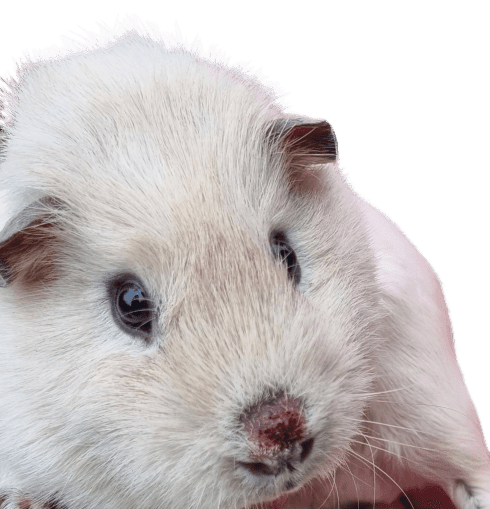
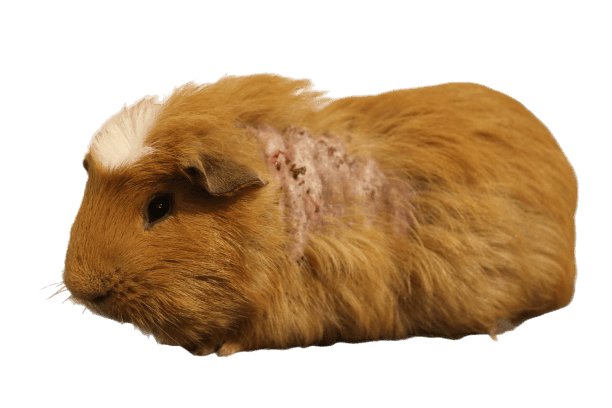
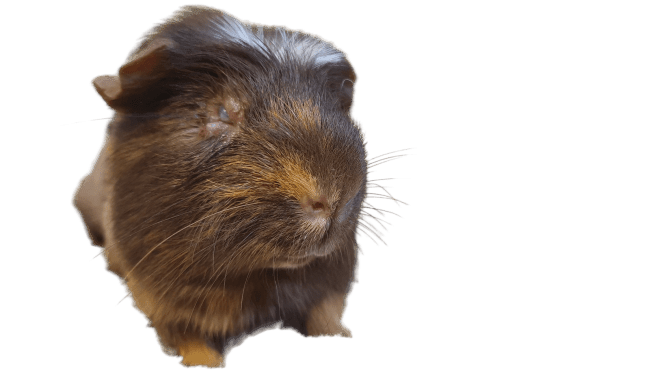
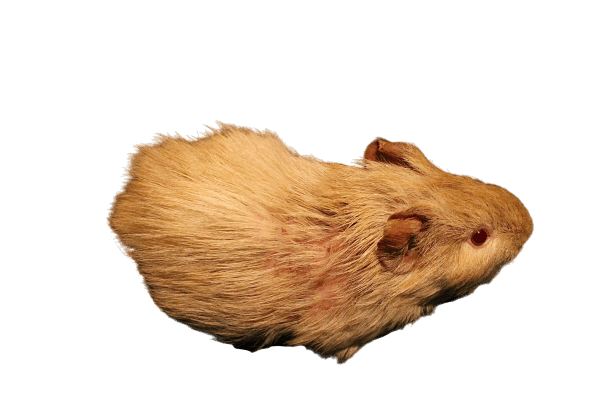
Guinea pigs are prey animals and so try to hide their illnesses and pain - any small signs that something is not right get them to a vet!
Even something as simple as a personality change.
